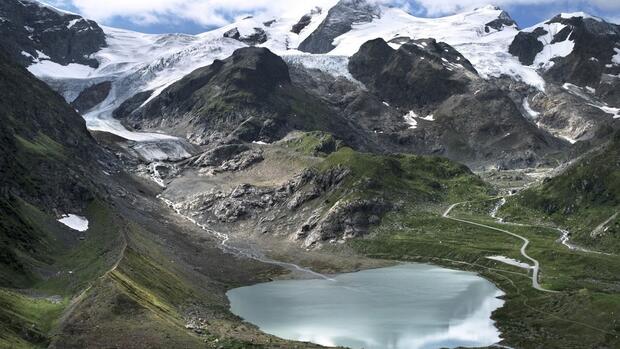Zurich Christian Mumenthaler does not shy away from making a clear choice recommendation. The head of the world’s second-largest reinsurer, Swiss Re, writes on the LinkedIn careers network that he himself “puts a ‘yes’ in the ballot box with conviction” when it comes to the climate protection law on June 18th.
The president of the Economiesuisse association, Christoph Mäder, made a similar statement: The Swiss economy supports the government’s goal of not emitting any more climate-damaging greenhouse gases by 2050.
Mäder is therefore calling on the population to vote for the planned climate protection law in the upcoming referendum on Sunday. “It is crucial that we refrain from ideological trench warfare and pull together,” says Mäder.
The appeals seem to be working: According to current surveys, more than 60 percent want to approve the climate protection law proposed by the government.
The German Federal Minister for Economic Affairs, Robert Habeck (Greens), can only dream of such survey figures and comparable public support in the economy these days. His heating law splits the traffic light government, triggers criticism in the middle class and helps the AfD to fly high.
Habeck’s Greens have similar goals to those of the Swiss government, such as switching to modern heating systems that are no longer operated solely with gas or oil.
Government promises billions in funding
But while the coalition almost collapsed over Habeck’s heating law, the federal government has convinced all parties, with the exception of the right-wing conservative Swiss People’s Party (SVP), of the climate protection law.
Even the liberal FDP is on board, although the majority of liberal voters are skeptical. How did Swiss politics manage that?
Martin Bäumle, who sits on the National Council for the Green Liberal Party, says: “The Climate Protection Act sets clear goals, but no bans.” It is important for the support of business and the population to formulate the law as “technology-neutral” as possible.
This makes it more difficult for the “No” camp to present the Climate Protection Act as a hodgepodge of bans. The right-wing conservative SVP is mobilizing against the project with the catchphrase “Electricity Guzzler Law”.
SVP parliamentarian Christian Imark says: “It is correct that the electricity guzzler law does not state that petrol or oil and gas heating systems are banned. But it is the logical consequence if such radical goals are to be pursued. It won’t work otherwise.”
Specifically, the law provides for the Paris climate goals, to which Switzerland has also committed itself, to be cast in paragraphs. From 2031, for example, greenhouse gases must fall by at least 64 percent compared to 1990.
(Photo: IMAGO/Andreas Haas)
Specifically, the law provides for the Paris climate goals, to which Switzerland has also committed itself, to be cast in paragraphs. Binding interim targets are also regulated: from 2031, for example, greenhouse gases must be reduced by at least 64 percent compared to 1990, and by up to 75 percent by 2040.
In order to achieve this, the Swiss federal government wants to invest a lot of money: it is providing 200 million francs (about 205 million euros) annually for the next ten years to help homeowners replace their heating systems.
Companies can apply for additional funding of CHF 200 million per year over a period of six years in order to convert their production to be climate-neutral.
Bäumle describes what that means: “The net zero target means that oil or gas heating can only be operated with synthetic fuels in the future.” .
Similarly with mobility. Bäumle expects that the battery drive will prevail in cars. In the case of trucks, it could also be e-fuels. “It is important that the law creates a market incentive,” says Bäumle.
Referendums force early cooperation
The majority of Swiss voters are critical of state requirements as to which technology is preferable and how much CO2 should be saved. This became apparent two years ago: in June 2021, the government failed with a CO2 law. Among other things, it provided for detailed CO2 reduction targets for all sectors.
One of the lessons politicians learned from the defeat: “We are no longer planning a law that regulates everything,” explains Bäumle. The current climate protection law is about agreeing on binding fundamental goals.
>> Read also: The climate crisis could cost Germany 900 billion euros
As soon as this agreement is reached, it is a question of bringing further laws with detailed measures on the way. These must always be valid in a referendum.
The prospect that every law can be overturned by a referendum is forcing politicians to involve the various interest groups at an early stage – including companies.
A lot of work has been done in the background to get the economy on board, says GLP politician Bäumle. “We don’t portray the companies as something negative, but work together on compromises.” In Germany, he sometimes has the impression that the government and parliament make decisions and the economy is only informed afterwards.
More: The Swiss have a choice – Why most parties are now in favor of introducing the OECD minimum tax
